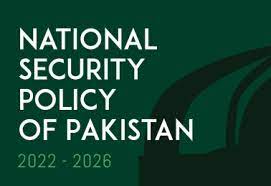Web Desk
Prime Minister Imran Khan has unveiled a public version of Pakistan’s first-ever National Security Policy (NSP), saying the country was in dire need of a multi-pronged strategy for the future to ensure the protection of its citizens and guard economic interests.
The NSP was approved by the federal cabinet on December 28, a day after it got the nod of the National Security Committee, according to English newspaper, Daily Dawn
The policy defines the direction the country should take in the coming years. Its makers are said to have taken a citizen-centric approach to national security and placed a special emphasis on economic security.
Highlighting key facets of the policy in his address in the capital Islamabad on Friday, the premier noted that governments’ mindsets since the country’s inception were to focus on military security and they never planned beyond it.
The country was blessed to have well-trained and disciplined security forces who protected the territorial boundaries against belligerent neighbours, he added.
PM Imran stressed that Pakistan needed to have inclusive growth, but “compulsions to acquire loans from institutions like the International Monetary Fund (IMF) put the national economy at risk”.
He lamented that the country never had a plan to secure itself economically.
“The concept we have now brought to Pakistan is to make sure of the uplift of the vulnerable segment,” he said, adding the nation will remain insecure if the rich kept becoming richer with no measures in place to protect the downtrodden segment from economic meltdown.
Imran said his government introduced health cards as well, along with unveiling a single national curriculum to remove the disparity of resources among the masses.
The premier also stressed the need for boosting exports, saying no country could flourish economically if the volume of its exports was far smaller than its imports.
He highlighted that the rule of law was equally significant in making a country prosperous. “The reason behind the progress of any country is a strong presence of the rule of law.”
Speaking at the launch ceremony,National Security Adviser (NSA) Moeed Yusuf said there were very few countries that codified policies like the ones Pakistan crafted of late. He said a part of those policies were released to apprise the world of their salient features.
Dr Yusuf said the NSP was centered around economic security while geo-strategic and geo-political imperatives also featured prominently in it to strengthen Pakistan’s security and standing in the world.
He highlighted that the document was finalised after full civil-military consensus.
What is National Security Policy
The NSP document is meant for a five-year period (2022-26) but it will be reviewed at the end of every year.
The full 110-page NSP document will remain classified. However, a shorter nearly 50-page version is being published.
Critical analysis of the state of affairs in various sectors is contained in the main document, and the implementation framework and the indicators developed for monitoring and evaluating the progress made towards the policy’s execution are not being included in the public version, which, moreover, will not spell out the different elements of national interest.
The document contains chapters on national cohesion, economy, defence, internal security, foreign policy and human security.
In the foreign policy domain, NSP places equal emphasis on political as well as economic diplomacy, besides listing peace in the region as the top priority. It, moreover, reiterates the commitment to not becoming part of bloc politics.
The defence part highlights the challenges posed by hybrid war and threats to cyber security in addition to issues pertaining to the conventional capabilities and strategic deterrence.
It recommends increasing the size of the resource pie, addressing the external imbalance, and judicious redistribution of wealth.
Thorny topics like accountability, curriculum review, governance challenges, including review of the 18th Constitution Amendment and future status of Gilgit-Baltistan, will be part of the classified portion.















